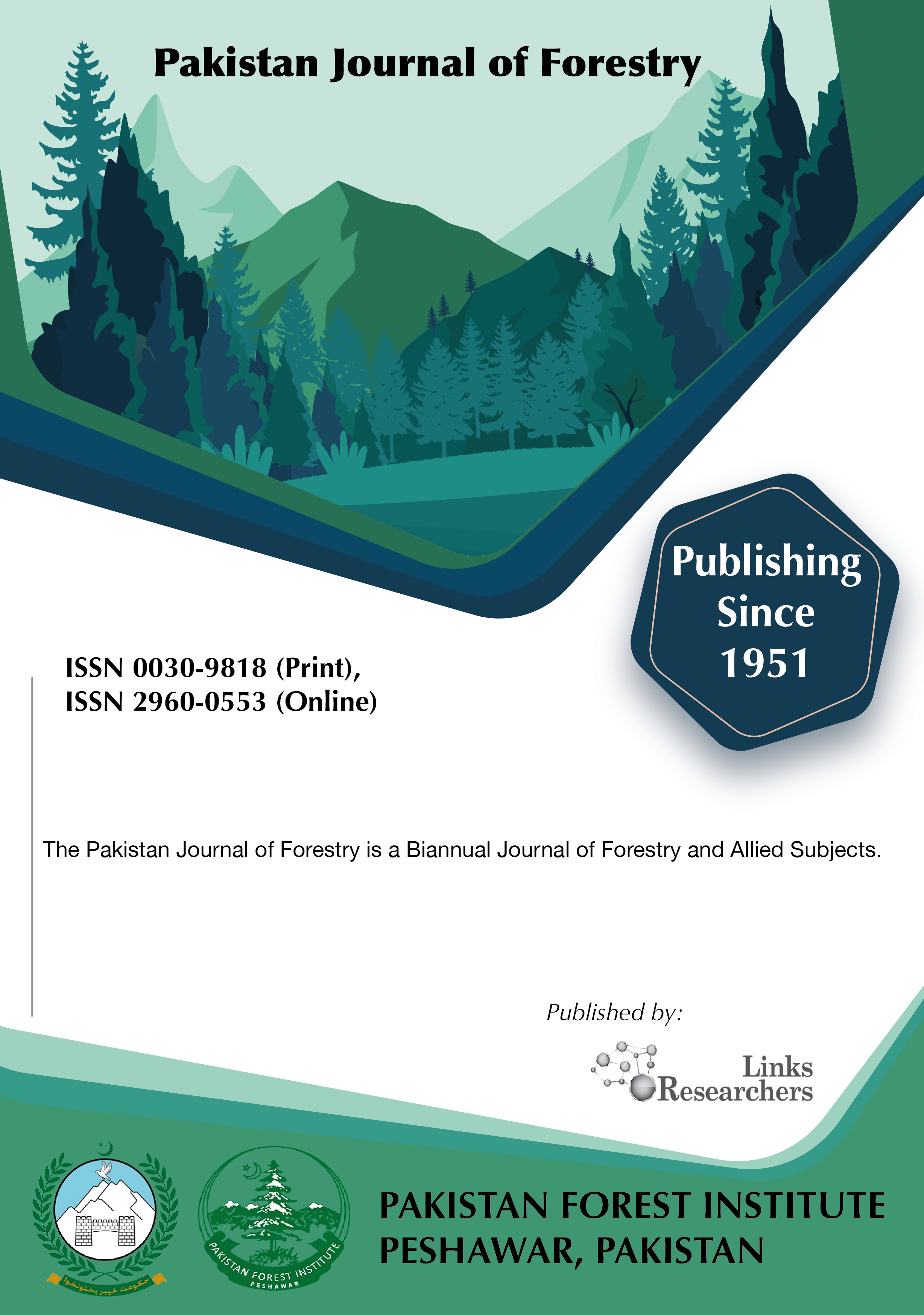Effects of fertilizer, exclosure, clipping and grazing on floristic diversity of the moist temperate grazing lands
Sardar Muhammad Rafique
ABSTRACT
The study was carried out at Kund, Shinkiari during May 1989 to September, 1995. Three main treatments namely; one final cutting, two clipping and continuous (conventional) grazing were tested in 10 x 10 metres plots. Each plot was sub divided in 10 x 5 metres and
chemical fertilized was applied in one sub-plot under each major treatment at the uniform single dose of NPK (1:2:2) at the rate of 100 Kg N, 200 Kg P and 200 Kg K. The experiment was twice replicated. The study has revealed that floristic composition of grass and forbs
species had improved manifolds. The vegetation cover percentage, herbage production, species composition, species distribution and number of species had increased under combined effects of protection and fertilizer application. The Poa alpine - Potentilla fragarioides vegetation type was transformed to Poa alpine - Digitaria sanguinalis types. This change had also registered increase in species number from 18 to 27. One final clipping and two clippings have no appreciable effect on floristic composition however, two clippings has caused slight increase in forage production. The study has demonstrated that poor temperate rangelands
could be rehabilitated by application of suitable fertilizer and control grazing for about 5 years.
To share on other social networks, click on any
share button. What are these?




